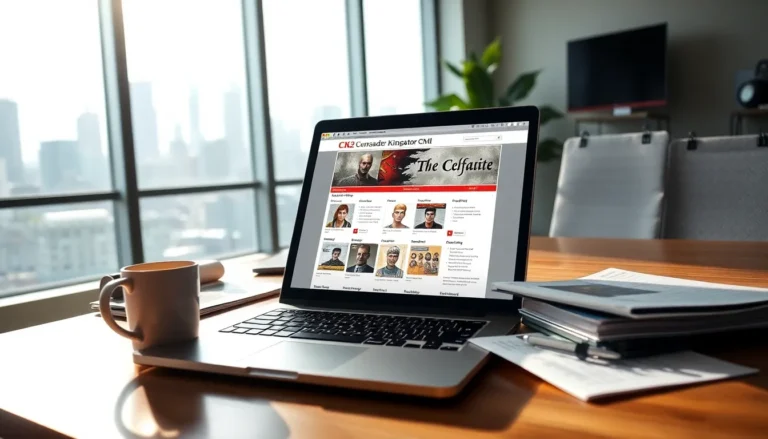In today’s fast-paced digital landscape, email remains an essential tool for communication, especially at Redwebzine. Have you ever accidentally sent a semi-coherent email that made you question your sanity? Fear not, for this guide is here to save the day (and your inbox). With the right strategies, you can transform your emails into crisp, effective messages that not only convey your thoughts but also reflect your professionalism. So grab your keyboard, and let’s jump into the enchanting world of email at Redwebzine.
Table of Contents
ToggleOverview of Redwebzine

Redwebzine is not just any online publication: it’s a vibrant hub for content creators, professionals, and digital enthusiasts alike. Focused on delivering insightful articles, reviews, and trends, Redwebzine captures the essence of the digital age, making it a must-read for anyone looking to stay ahead. Understanding the ethos and mission of Redwebzine enhances the way individuals communicate through email. Each message sent or received carries the weight of the publication’s reputation, this is where effective email communication becomes essential.
Purpose of Email Communication
Email serves multiple purposes at Redwebzine. It’s not just a medium for sending messages: it connects writers, editors, and readers seamlessly. Whether soliciting feedback on an article, collaborating on a piece, or simply sharing a quick update, emails are the lifeblood of communication. They ensure everyone is on the same page, fostering collaboration and creativity. A well-crafted email can spark new ideas, drive engagement, and promote understanding among team members.
How to Effectively Use Email @Redwebzine
Mastering the art of email writing can establish professionalism and efficiency. Here’s how:
Tips for Professional Email Writing
- Be Clear and Concise: Get to the point quickly. A busy editor appreciates brevity.
- Use a Professional Tone: Even if you’re friends with the recipient, maintain professionalism to reflect well on yourself and Redwebzine.
- Subject Lines Matter: Craft engaging subject lines that give a hint of your email’s content without becoming all buzz and no substance.
- Don’t Ignore Grammar and Spelling: Mistakes can undermine your credibility: always proofread.
- End with a Purpose: Whether it’s a question, action items, or a simple sign-off, let the reader know what you expect.
Best Practices for Formatting Emails
- Use Paragraphs Wisely: Break up large blocks of text to enhance readability.
- Bullet Points and Lists: These draw attention and make information digestible, especially for busy recipients.
- Include Your Signature: Clearly state who you are, this will help establish your identity within the Redwebzine framework. Your signature can include your name, position, and contact information, enhancing professionalism.
Effective formatting ensures your emails are not only read but also appreciated.
Common Email Pitfalls to Avoid
Even the most seasoned email senders can fall into traps that derail effective communication. Watch out for these common pitfalls:
- Using a Generic Greeting: Like addressing your email to ‘To Whom It May Concern’ can feel impersonal. Personalize it, if possible.
- Overloading with Information: Avoid sending overly detailed messages that can overwhelm or confuse the reader.
- Forgetting Attachments: Forgetting attachments after mentioning them in the email can be frustrating. Double-check before hitting ‘send’.
- Replying All: Know when to use ‘Reply All’ and when to keep it to yourself to avoid cluttering inboxes.
Response Expectations and Timing
Understanding when to expect a response can ease communication anxiety. At Redwebzine, quick responses are appreciated, especially for urgent matters. But, allow at least 24–48 hours for replies. Consider time zones and workloads of your colleagues. If you haven’t heard back in a reasonable timeframe, a polite follow-up is often necessary. Keeping track of who owes you a response can be challenging, but a system can help, like creating a task list or reminders.



